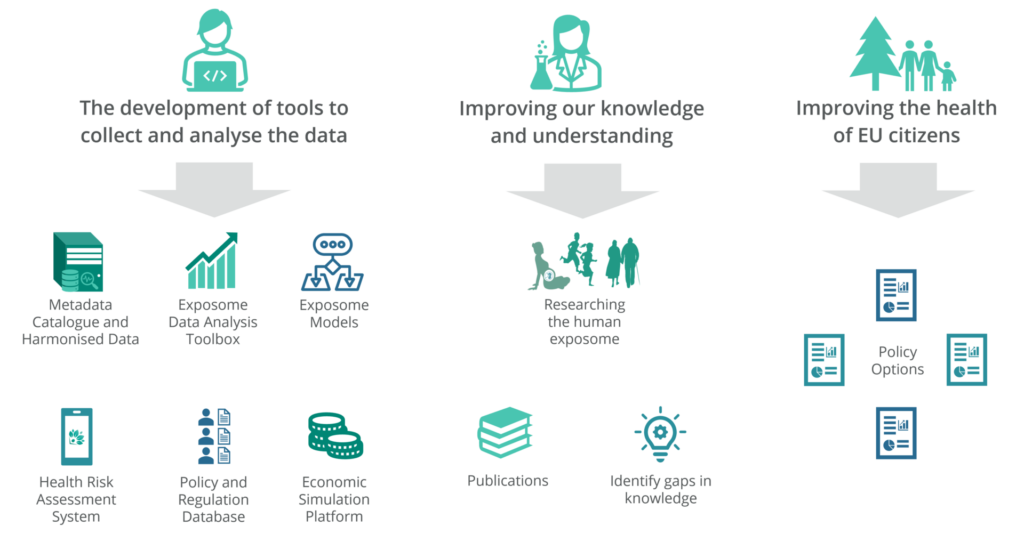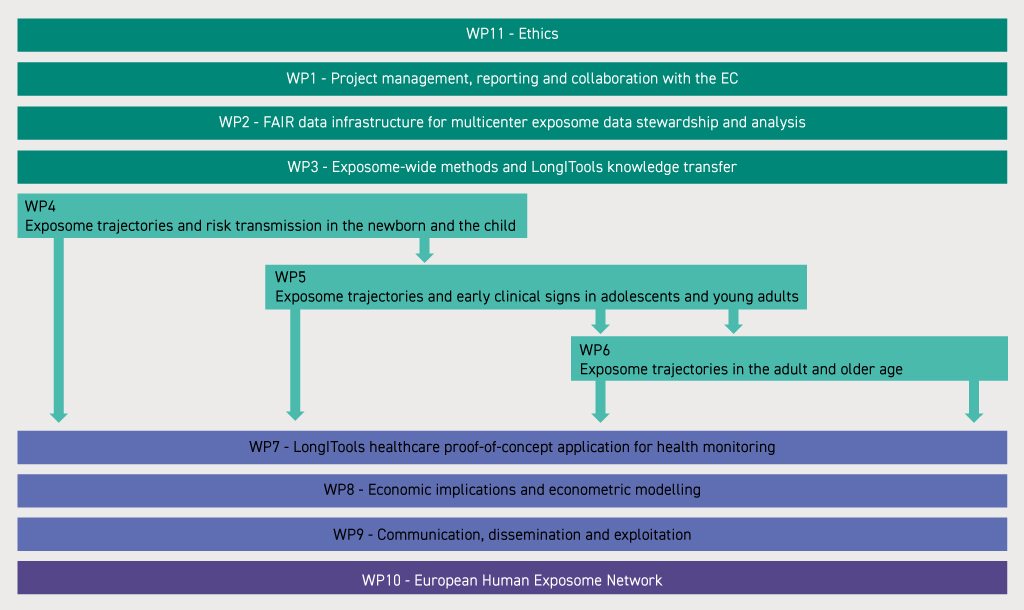Project
The LongITools project studied the interactions between environmental, lifestyle and biological factors to determine people’s risks of developing cardiometabolic non-communicable disease, such as obesity, type 2 diabetes, heart diseases and atherosclerosis.
Project objectives and outputs
Using a large resource of life-course data, the project studied how exposure to environmental (air pollution, noise and the built environment), lifestyle and biological factors collectively contribute to the risk of developing cardiovascular and metabolic diseases across the life-course. The aim of the research was to identify the underlying molecular mechanisms that explain how environmental exposures contribute to the development of cardiometabolic diseases, and factors that can modify or activate these mechanisms, to help prevent disease. We used key, harmonised variables within the LongITools data sets to study exposures across life-stages. The project took an exposome or holistic-based approach to define the disease pathways and the points at which to best intervene during the life-course to reduce the risks.
The research resulted in a number of key outputs:

Our Partners and Advisory Board
The project was led by the University of Oulu in Finland and involved 18 partners, including 15 research institutions and 3 SMEs, across 8 European countries. The combined team had significant expertise in epidemiology, genetics, epigenetics, metabolomics, nutrition, lifestyle, mathematics, economics, policy making, artificial intelligence and sensor technology. The team was also supported by an External Advisory Board, providing independent scientific, policy and ethics advice to the consortium. The Board members included:
- Professor Alena Buyx, Technical University Munich, Germany;
- Dr Liisa Byberg, Uppsala University, Sweden;
- Dr Zoltan Kutalik, University of Lausanne, Switzerland;
- Leena Vuotovesi, CEO, Oulu Business Center & Oulun Narikka Ltd, Finland.
Member of EHEN Network
LongITools was a member of the European Human Exposome Network (EHEN), a cluster of research projects studying the impact of environmental exposures on human health. The network played a critical role in delivering impactful exposome research.
 EHEN brought together nine research projects, receiving over €100 million from Horizon 2020, the EU’s framework programme for research and innovation.
EHEN brought together nine research projects, receiving over €100 million from Horizon 2020, the EU’s framework programme for research and innovation.
Project Work Packages
The LongITools project was composed of eleven work packages (WP), seven of which were scientific, designed specifically to meet the project objectives and impacts.
